Leadership Certificate
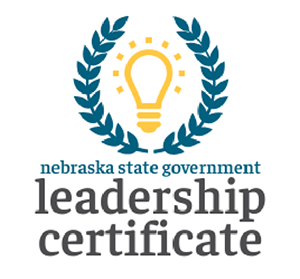
Personnel expenses are often the largest expenditure made by state agencies, in many cases millions of taxpayer dollars. An effective leader can leverage the significant dollars spent on our people into astounding results. However, to realize these results we must first invest in the leaders themselves. The Nebraska State Government Leadership Certificate is unlike any other leadership program. We have built a custom learning experience combining the knowledge of the most reputable professionals and our own internal experts to deliver curriculum that is both practical and immediately useful. Candidates stay connected online to instructors and each other continuously throughout the year, affording the highest retention rates of material while building a professional network that will continue to support their growth and development for the life of their careers at the State of Nebraska. At less than one-eighth the market price of equivalent courses and with the added value of constant support from the learning professionals in State Personnel and elsewhere, the Nebraska State Government Leadership Certificate offers a return on investment without measure.
State employees in a supervisory role or experienced managers desiring to increase leadership effectiveness.
The Leadership Certificate involves one year of continuous learning with a completion ceremony at the conclusion to properly recognize the achievement of successful candidates.
Registration and administration will be through Workday.
Contact among the group will be maintained throughout the education period through the Connect environment in Workday, which is a social collaboration feature that already exists in the system. A private group will be formed and maintained by the training team at State Personnel, providing engagement, enrichment and reinforcement.
Attendance is required for the entire time at all scheduled events. Events will not be recorded for later viewing as this significantly diminishes the learning experience. Completion of all program elements is required for graduation.
At the time of approval, the candidate’s direct supervisor will agree to support his/her participation, allowing time to attend and complete training. To best support the learning and growth of the candidate, it is strongly recommended that the direct supervisor meet with the candidate to establish a development plan to outline specific learning goals and desired outcomes of this experience. A template for an Individual Development Plan (IDP) will be provided. Subsequent meetings are strongly encouraged to update progress toward SMART goals and deadlines both verbally and in Workday. An orientation and ongoing support will be provided for leaders of the learners to achieve maximum benefit from the program. Additionally, each candidate will be exposed to experienced state government leaders who have volunteered to be Subject Matter Experts.
$1499 This fee is all-inclusive; there are never additional charges for books, supplies, etc.
Please contact Renae Prieto, Training and Development Manager, at 402-350-7596 or renae.prieto@nebraska.gov
Online Learning Suite

Provider
State Personnel
Description
Acknowledging that candidates will enter the certification curriculum with a wide range of expertise in these and other content areas, for 18 months starting at orientation unlimited LinkedIn Learning online courses through Workday is provided. Lists of recommended related coursework will be provided for each topic covered in an instructor-led setting.
Coaching the Tough Stuff
Provider
Crystal Booker
Description
Coaching a team member who is not meeting expectations is one of the most daunting parts of being a supervisor. This course will give you a roadmap to get through it, even the most difficult conversations, and see results. Learners will practice using simple and repeatable tools to help be successful in this critical leadership skill.
Cultural Competency
Provider
Crystal Booker
Description
Diversity. Inclusion. Political Correctness. Accommodations. How can leaders today navigate the changing workforce and environment while keeping teams focused on outcomes? Why is it critical to your business strategy to nurture team culture? What is the business case for maintaining an inclusive team? How can leaders manage the sticky issues? Too often leaders are left to flounder with these questions. We'll spend quality time tackling some of the toughest issues.
Developing Yourself and Others
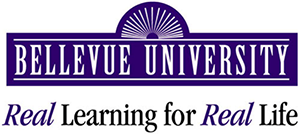
Provider
Bellevue University
Description
The best thing leaders can do to positively influence their team members is to work on improving themselves. The best leaders also find the best people they can and develop them into the best leaders they can be. The fact of the matter is, the people closest to you at work will determine your level success. People truly are the greatest asset in your organization and you’ll only be able to attract and hire great people if you have great people who candidates can see they could work beside. Furthermore, one of the greatest resources to retain employees is to invest in their development. We’ll show you why and teach you how.
By the end of the Developing Yourself and Others workshop, participants will be able to:
- Prioritize professional development investments for bench strength and career path succession needs.
- Categorize the fundamentals and precursors to helping others reach their potential.
- Direct an environment for ownership and personal responsibility.
Effective Communication for Leaders
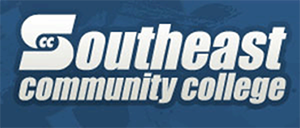
Provider
Southeast Community College
Description
Cutting edge leadership thinkers and practitioners agree that what constitutes effective leadership has changed radically in the last two decades. Traditional, top-down, command-and-control approaches are ineffective in eliciting what is needed most in a social and economic climate characterized by limited resources and relentless change: innovation and employee engagement. Managers must now adopt new, more positive approaches to leadership. To succeed, managers attempting these more positive approaches to leadership require advanced training in several domains including interpersonal communication.
Interpersonal Communication for Leaders:
- A practical model of communication;
- Active listening;
- Body language for leaders;
- Positive verbal communication;
- The art and science of employee motivation;
- The science behind how humans communicate.
Effective Performance Management
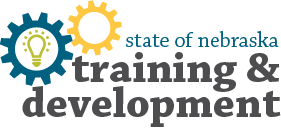
Provider
State Personnel
Description
Course will cover the philosophy behind and execution of high-quality performance appraisals.
Candidates will explore the following topics:
- Cost of neglecting performance management;
- Setting SMART goals for maximum achievement;
- Utilizing universal performance dimensions and essential job duties;
- How to evaluate performance fairly and honestly;
- Getting the most from a five point rating system;
- Mastering the behavior results matrix;
- Effective strategies for conducting the actual performance review for all types of employees.
Emotional and Social Intelligence
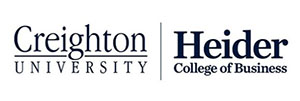
Provider
Creighton University
Description
Efforts to develop emotional intelligence have shown that EQ skills significantly correlate with improved leadership performance and more successful recruiting. This session offers a way to understand our emotions and those of others. With that understanding, we can control our emotions, influence others, and achieve greater success.
Ethics in Government

Provider
State Personnel
Description
A panel discussion of ethics in government, with a mixture of questions & answer from the audience and short keynote speeches by experts in human resources, agency leadership, contracting, and more.
Hiring Right

Provider
State Personnel
Description
In today’s fiercely competitive human resource marketplace, hiring and retaining quality employees is a must for all top leaders. During this session, you will learn the importance of hiring right and creating an environment in which employees can thrive and are more likely to stay.
Leadership and Conflict

Provider
Bellevue University
Description
Conflict is everywhere but not all conflict is bad. We will consider the benefits of conflict and explore the causes and types of conflict that a leader is likely to come across. To coach successfully, leaders must have strong conflict handling skills. Participants will complete a conflict self-assessment and discuss how their results affect how they deal with conflict. Participants will learn how to effectively handle disagreement and foster shared meaning for mutual benefit between employees.
By the end of the workshop, participants will be able to:
- List underlying factors driving conflict in the workplace.
- Diagnose how individual perspectives affect difficult conversation.
- Prepare, conduct, and evaluate difficult conversations.
Navigating Change for Leaders

Provider
Southeast Community College
Description
"The only thing constant is change." It was true when Heraclitus said it 2500 years ago, and it's certainly true today at the State of Nebraska. This session will help participants develop change-capable teams who are able to adopt new behaviors and deal effectively with constant organizational change. Learners will be exposed to a variety of practices and tools to integrate change into day-to-day work, inspire and leverage individual commitment, and lead focused change efforts that realize concrete, measurable results.
At the end of the program, participants will be able to:
- Describe the central role of change capability in improved organizational and individual performance.
- Take high-payoff actions to build change capability in your work area and throughout the organization.
- Maximize your commitment – and encourage the commitment of others – to making change happen.
- Work toward expected change results.
Personnel Rules and Contracts

Provider
State Personnel
Description
An overview of the Personnel Rules and Labor Contracts with emphasis on frequently confusing or misunderstood issues with ample opportunity for questions and discussion.
Building Team Morale

Provider
State Personnel
Description
According to sociologist Alexander Leighton, "morale is the capacity of a group of people to pull together persistently and consistently in pursuit of a common purpose." One of the most important roles as a leader is to build and maintain the morale of the team. Teams with high morale experience higher productivity and staff engagement. They also experience lower employee turnover and absenteeism, and they have a happier workforce. This in turn makes it easier to attract and retain the best talent. During this class, candidates will learn about why team morale is vital to a team's success, why morale suffers, and practical steps to build and maintain the morale of their teams.
Planning for Succession

Provider
Bellevue University
Description
Beyond headcount planning and beyond workforce planning, a need has been identified to build better succession planning. We'll help you focus on the roles that are critical to achieving the goals of the organization. You'll discover how to initiate a succession planning process from the conceptualization of the problem to developing an action plan. Together, we'll tackle the challenges of developing a healthy bench of ready-and-willing talent, who will improve business continuity and help transform your workplace into a place of great opportunity and great job fit.
Competing for Talent with Culture
Provider
Brooke Jensen
Description
It may seem difficult to compete for talent when you work in state government. There's a lot we can't offer that other local businesses do such as free food, bean bag-strewn offices, and unlimited vacation time. It's easy to get discouraged. In this session, Brooke will dive deeper into retention and culture efforts at local business then we'll workshop the perks we can't offer. You'll come away with a list of effective things you CAN do at state government to stay an attractive employer.
Cultivating a Positive Culture
Provider
David Weisser
Description
Many think "engaging cultures" are reserved for young, hip tech start-ups that were just "born lucky". Others feel stuck with their company culture because "it's always been this way". A sense of inevitability leads some to chase quick fixes. Some try gimmicky programs. Others apply bloggy pseudo-science. These tactics rarely work as intended. In many cases, they cause cultural damage that is particularly hard to undo.
A review of the literature makes it clear. For better or for worse, organizations earn their cultures. This course details the pillars of organizational culture. Leaders, managers and employees alike will use introspective methods to evaluate cultural consensus across their organizations. Identifying both the strongest and softest elements of culture, and how they came to be the way they are, will help to elucidate strategies to change even the most intransigent among them.